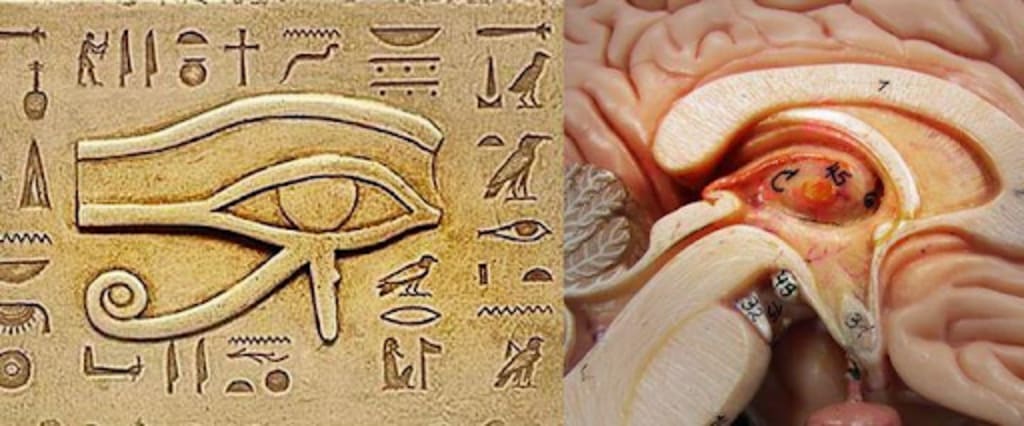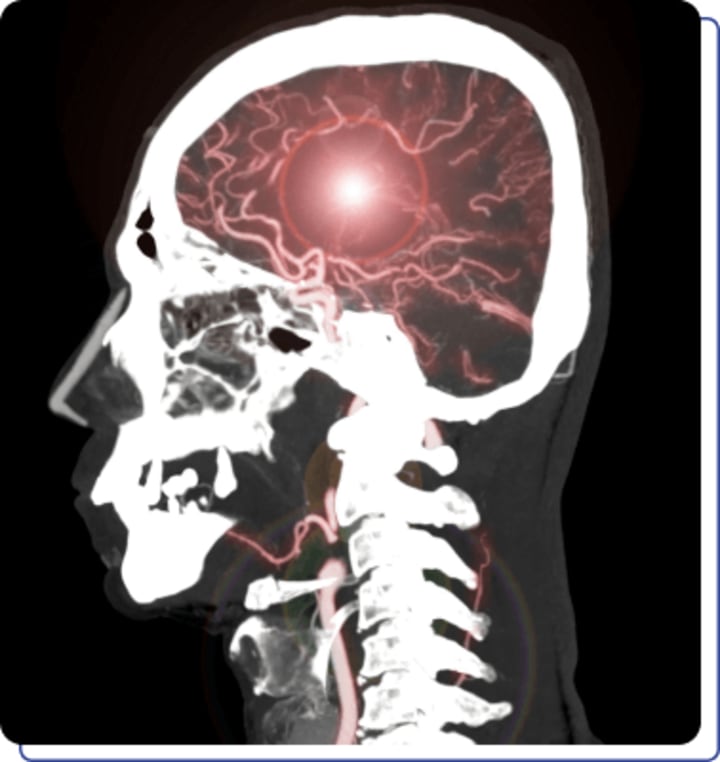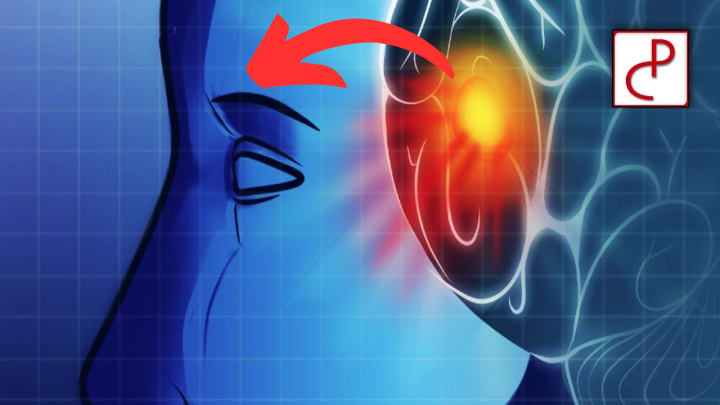Pineal Gland: The Mysterious Third Eye
Often called the "third eye," this gland is thought to be the source of our spiritual insight and intuition

The pineal gland, a small yet significant endocrine gland located deep within the brain, has long fascinated both scientists and spiritual seekers. Known for its role in regulating sleep through the production of melatonin, this tiny gland has been associated with mystical experiences and higher states of consciousness. This comprehensive guide explores the pineal gland's function, location, activation, and its impact on health, while delving into the hormones it produces and potential disorders that can affect it.
Pineal Gland Function
The primary function of the pineal gland is to produce and regulate hormones, particularly melatonin. Melatonin is crucial for maintaining the body's circadian rhythms, which dictate sleep-wake cycles. By secreting melatonin in response to darkness, the pineal gland helps the body recognize nighttime and promotes sleep. This hormone is also a powerful antioxidant, protecting cells from damage caused by free radicals.
Pineal Gland Location
The pineal gland is located near the center of the brain, tucked into a groove where the two halves of the thalamus join. It's about the size of a pea, shaped like a pine cone, which is how it gets its name. Despite its small size, the pineal gland is highly vascularized, meaning it has a rich blood supply relative to its size, which allows it to secrete hormones directly into the bloodstream.
What Happens When the Pineal Gland is Activated
When the pineal gland is activated, either through natural or intentional means, it can lead to several physiological and psychological changes. Activation typically results in increased production of melatonin and other hormones that affect sleep and mood. Beyond its biological functions, the activation of the pineal gland is often linked to spiritual awakening and enhanced intuition, earning it the nickname "the third eye" in many spiritual traditions.
People who experience pineal gland activation report a variety of sensations and insights, including heightened intuition, enhanced clarity of thought, vivid dreams, and a deeper sense of connection to the universe. This activation is often pursued through practices like meditation, yoga, and exposure to certain light frequencies.

Pineal Gland Function in the Brain
In addition to regulating sleep, the pineal gland plays a crucial role in various brain functions. It helps synchronize the body's internal clock with external environmental cues, such as light and temperature, ensuring that physiological processes occur at the optimal times. The pineal gland also influences reproductive hormones and seasonal biological rhythms.
Its connection with the hypothalamus, the brain's control center for many autonomic functions, underscores the importance of the pineal gland. By influencing the hypothalamus, the pineal gland helps regulate hunger, thirst, sleep, mood, and libido, thus maintaining overall homeostasis.
shocking… THIS happens to your pineal gland between 10 PM and 3 AM
Melatonin and the Pineal Gland
Melatonin is the most well-known hormone produced by the pineal gland. Its production is stimulated by darkness and inhibited by light, making it a key regulator of the sleep-wake cycle. Melatonin levels typically rise in the evening, stay elevated throughout the night, and decrease in the early morning.
Beyond regulating sleep, melatonin has several other important functions:
Antioxidant Properties: Melatonin is a potent antioxidant that helps protect cells from damage caused by free radicals.
Immune Function: It supports the immune system by enhancing the body's ability to fight infections and diseases.
Reproductive Health: Melatonin influences the timing of puberty in children and helps regulate menstrual cycles in women.
Mood Regulation: By modulating levels of other hormones and neurotransmitters, melatonin plays a role in maintaining mood balance and preventing depression.
Pineal Gland Hormones and Their Functions
In addition to melatonin, the pineal gland produces other hormones and neurotransmitters, though in smaller quantities. These include:
Serotonin: A precursor to melatonin, serotonin is a neurotransmitter that regulates mood, appetite, and sleep. It’s often referred to as the "feel-good" hormone.
Dimethyltryptamine (DMT): Although controversial and less understood, some researchers believe the pineal gland produces DMT, a compound associated with vivid dreams and psychedelic experiences. DMT is thought to play a role in consciousness and spiritual experiences.
Beta-carbolines: These compounds have been found in the pineal gland and are believed to influence brain activity and consciousness.
Pineal Gland Disorders
Disorders of the pineal gland can have significant impacts on health, affecting sleep, mood, and overall well-being. Some common pineal gland disorders include:
Pineal Tumors: These are relatively rare but can cause symptoms like headaches, nausea, vision problems, and sleep disturbances. Tumors can be benign or malignant and may require surgery or other treatments.
Pineal Cysts: These fluid-filled sacs within the pineal gland are often benign and asymptomatic. However, if they grow large, they can cause symptoms similar to those of tumors.
Pineal Gland Dysfunction: This can result from hormonal imbalances, leading to issues such as sleep disorders, mood swings, and changes in reproductive health.
Calcification: Over time, the pineal gland can become calcified, which may reduce its function and impact sleep and mood.

Pineal Gland Calcification
Calcification of the pineal gland is a common phenomenon, especially as people age. It involves the accumulation of calcium phosphate crystals within the gland, which can impair its function. Factors contributing to pineal gland calcification include:
Fluoride: Exposure to fluoride, often found in drinking water and dental products, has been linked to increased calcification of the pineal gland.
Diet: Poor diet lacking in essential nutrients can contribute to calcification. Diets high in calcium and low in magnesium are particularly problematic.
Environmental Toxins: Exposure to heavy metals and other environmental toxins can accelerate calcification.
warning...Your third eye opens between 10 PM and 3 AM tonight?
Symptoms of Pineal Gland Calcification
When the pineal gland becomes calcified, it can lead to various symptoms:
Sleep Disorders: Insomnia or difficulty maintaining a regular sleep cycle due to impaired melatonin production.
Mood Disorders: Increased risk of depression and anxiety as a result of disrupted melatonin and serotonin levels.
Cognitive Decline: Impaired cognitive functions, such as memory and concentration.
Hormonal Imbalances: Irregularities in reproductive hormones, potentially affecting menstrual cycles and libido.
Preventing and Reversing Pineal Gland Calcification
There are several steps one can take to prevent or reduce pineal gland calcification:
Dietary Changes: Eating a diet rich in antioxidants, magnesium, and essential vitamins can help protect the pineal gland. Foods like leafy greens, nuts, seeds, and berries are beneficial.
Fluoride Reduction: Reducing exposure to fluoride by using fluoride-free toothpaste and drinking purified water can help prevent calcification.
Detoxification: Engaging in regular detox practices, such as drinking plenty of water, consuming detoxifying herbs, and fasting, can help cleanse the body of toxins.
Sunlight Exposure: Regular exposure to natural sunlight helps maintain a healthy circadian rhythm and supports the pineal gland's function.
Activating the Pineal Gland
Activating the pineal gland can lead to enhanced spiritual awareness and overall well-being. Various practices can help stimulate this gland:
Meditation: Regular meditation, especially focusing on the area between the eyebrows, can help activate the pineal gland. Visualization techniques, imagining a bright light at this point, can be particularly effective.
Yoga: Specific yoga poses and breathing exercises can stimulate the pineal gland. Practices like child's pose, forward bends, and alternate nostril breathing (Nadi Shodhana) are beneficial.
Sound and Light Therapy: Certain frequencies and light wavelengths can stimulate the pineal gland. Binaural beats and Solfeggio frequencies, as well as exposure to natural light, can promote activation.
Crystals and Essential Oils: Using crystals like amethyst and lapis lazuli or essential oils such as frankincense and lavender can support pineal gland activation.
Conclusion
The pineal gland, often regarded as the "third eye," plays a crucial role in regulating sleep, mood, and overall health. Its activation can lead to profound physiological and spiritual benefits. Understanding the factors that stimulate the pineal gland, recognizing potential disorders, and taking steps to prevent calcification are essential for maintaining its health.
Through practices like meditation, yoga, and a healthy diet, one can enhance the function of this mysterious and powerful gland, leading to greater well-being and a deeper connection to the universe.
USE this 30-Second Method Before 10 P.M. TONIGHT To Awaken Your Third Eye.
About the Creator
Edwin Pineda
Life should be a well balance life heatlh, weatlh, spirituality, family, hobbies etc. I'm married with 3 kids.
Enjoyed the story? Support the Creator.
Subscribe for free to receive all their stories in your feed. You could also pledge your support or give them a one-off tip, letting them know you appreciate their work.






Comments
There are no comments for this story
Be the first to respond and start the conversation.